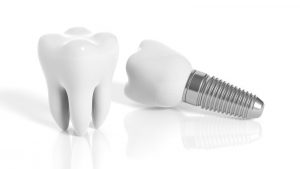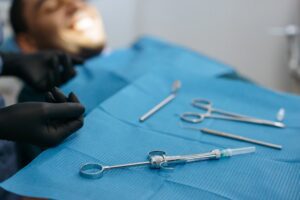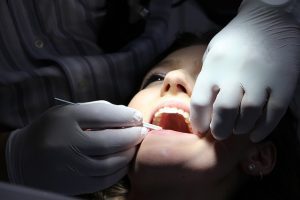We’re living through a devastating health crisis in America: opioid addiction. In 2017, 75,000 Americans died from overdose – that’s more Americans than were killed during the entire Vietnam War. The US Department of Health and Human Services declared the opioid academic a public health emergency. But that hasn’t stopped its momentum; by 2020, that death toll rose to over 93,000.
The path to opioid addictions usually begin at the hands of a doctor. In the ‘90s, pharmaceutical companies went on a marketing blitzkrieg trying to convince medical professionals, and the public, that opioids were not addictive, which caused the healthcare community to begin to prescribe them more. A lot more. It began a snowball effect that has totaled over 760,000 deaths to date.
How Do People Get Addicted to Opioids?
It isn’t that doctors were out to get patients addicted to painkillers. It’s an unfortunate series of events that leads someone into opioid addiction, and it has a lot to do with brain chemistry, personality, and genetic predispositions to addictive tendencies:
You get prescribed, say, Percocet after a knee surgery. After a couple weeks, the prescription runs out. But you’re still in pain, so you get your doctor to prescribe more. After you’ve been on it for a few weeks, you start to realize you’re not actually taking them for pain anymore, but because they make you feel good.
Under the wrong circumstances, this leads to a dependency: you feel you need those Percocet to get through the day. This is coupled with the development of physical dependency, and then tolerance, meaning you need more and more often to feel the same positive effects as you did those first couple of weeks.
But your doctor isn’t going to prescribe you any more Percocet. What’s the closest thing? Street drugs. And when you can’t find the illegal script you’re looking for, you resort to meth and fentanyl, both of which are so dangerous that even seasoned users can OD at any time.
This story has become all too common and all too deadly, and in response, the medical community has harshly curtailed opioid prescriptions. It’s not a solution to the epidemic, but it is a way to prevent the epidemic from continuing any longer.
Comfortable Recovery from Oral Surgery without Opioid Reliance
Today, the American Dental Association recommends prescribing alternative pain relievers and only prescribing a seven-day supply (with no refills) when opioids are necessary. We go a step further at Wilmington Oral Surgery.
For many years now, our office has taken the initiative to encourage natural and homeopathic measures in order to minimize pain and accelerate healing. When opioids are necessary, we recommend using one-half of the narcotic dose with an anti-inflammatory such as Advil or Motrin. Our patients consistently achieve comfortable and effective recovery with a more holistic approach to pain management. Our goal is to minimize, if not eliminate, our patients’ needs for that 7-day prescription; the less they feel they need to use, the better.
Getting in Front of the Pain with Natural Remedies
Many of our patients request homeopathic products and then report excellent results. For over ten years, we have used SockIt!, a natural cinnamon/clove/thyme gel, which reduces postoperative pain and essentially eliminates the risk of dry socket.
SockIt! contains only all-natural food ingredients, with nothing artificial. It has components from aloe vera, xylitol, and essential cinnamon, clove, and thyme oils. SockIt! is approved by FDA to be applied to any and all wounds in the mouth, and is covered by many insurance companies.
We also offer Stellalife VEGA products. Stellalife’s recovery kit (rinse, sublingual spray, and gel) is started two or three days prior to surgery and continues postoperatively for five to seven days.
A great benefit to the VEGA recovery kit is the preoperative use – we block the natural response to pain and inflammation before it starts. This holistic dental surgery recovery kit won the 2019 Top Oral Healing Product Award. Independently evaluated and recommended by the Dental Advisor, it received a 91% clinical rating.
An Integrated Oral Surgeon Eliminating Addiction Risks for Patients
As an oral surgeon trained in sedation dentistry, Dr. Puckett is deeply concerned with the opioid problem and the potential for addiction. That is why we take a more caring and thoughtful approach when it comes to pain remedies.
Dr. Puckett will get you as close to painless oral surgery as possible, and pay careful attention to your post-surgical prescriptions, making sure you get exactly what you need to comfortably recover from your oral surgery, but not enough that you’ll be in danger of getting addicted.
Pain medications prescribed after dental procedures are one of those common pathways to opioid addiction. Some dentists and oral surgeons prescribe liberal quantities of opioids for pain after common procedures such as the removal of wisdom teeth, not warning patients of the dangers of opioid addiction. Worse yet, some practitioners refill these prescriptions numerous times.
Because they stimulate brain reward centers, opioids are highly addictive. Opioids trigger the release of endorphins – feel-good chemicals in the brain. Endorphins mask pain and increase pleasurable feelings, creating a temporary, but strong sense of well-being. When an opioid dose wears off, a person wants those good feelings back, ASAP! According to some researchers, an addiction can begin in just a few days.
Opioid Addiction after Wisdom Tooth Removal
With five million Americans having their wisdom teeth removed every year, the connection between painkillers after the procedure and opioid addiction has come to the attention of national news outlets.
In an August, 2019, CBSNews report, Dr. Chad Brummett of the University of Michigan noted that even though research shows that a combination of acetaminophen and ibuprofen is effective to treat pain, dentists continue to prescribe opioids to young adults.
“…For many of these children, dental care is their first exposure to opioids,” said Brummett. “If we were to do some back-of-the-envelope math, something like 50,000 kids each year become new chronic opioid users after a procedure such as wisdom tooth extraction.”
Dr. Brummet found that filling a prescription for opioids more than doubled the odds of ongoing use among patients who had never used opioids for pain prior to getting their wisdom teeth removed.
Discussing Pain Solutions at Your Oral Surgery Consultation
Before any procedure, our team discusses pain solutions with the patient. We make the patient and/or their parent aware of the risks and benefits of each option. We believe it is part of our job to help patients and their parents understand how opioid addiction can develop after the use of opioids prescribed for pain, and to recommend alternatives.










